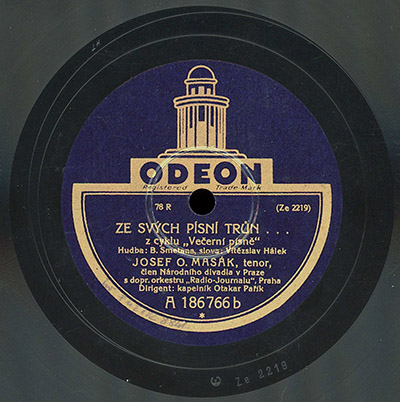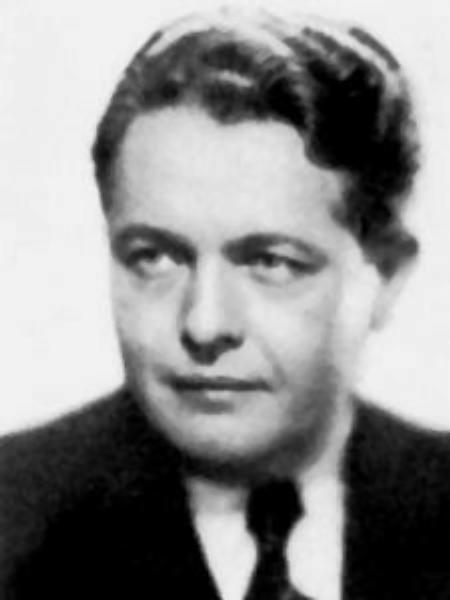Josef Otakar Masák

From 1916 to 1918, he took private voice lessons, just for fun. Then, after school, he worked in a bank while studying medicine. In 1923, he made his debut as Alfredo at Prague's third opera house, the Vinohradské divadlo, on invitation by the production's conductor, but as an amateur in fact. After further amateur stints at the Urania Theater in Prague and the Volksoper in Vienna, he quit his medicine studies, and became a full-time tenor in Olomouc in 1924; the same year, he was again successful in Vienna (this time at the Metropol-Theater in a series of Smetana operas organized by a Czech conductor). In 1926, he arrived at the Prague National Theater. However, having started to sing without having completed his vocal studies took his toll: his technique was shaky, and in 1930, he interrupted his career, and went to Germany so as to restudy. He was a member of the New German Theater in Prague from 1932 to 1934, and from 1935 to 1939 again of the National Theater. As a guest, he sang in Cologne, Warsaw, and regularly in Belgrade and Zagreb, as well as in the Czech provinces. In 1945, he joined the National Theater a third time, and stayed until he retired in 1960. He was one of the most important tenors at the National Theater, and sang 57 parts there in innumerable performances, notably Dalibor, Jeník, Dvořák's Prince, Lukáš (Hubička), Jíra (Braniboři v Čechách, Vít (Tajemství), Mánek (Eva by Joseph Bohuslav Foerster), Laca, German, Don José, Míkuláš Dačický (Zvíkovský rarášek by Vítézslav Novák), Petr (Karlštejn, again by Novák), Ctirad (Šarka by Fibich), Don Juan (Hedy by Fibich), Jan Sladký Kozina (Psohlavci by Kovařovic), Tichon, Shujskij. Reference 1; reference 2: Kutsch & Riemens
Anton Bieber has provided the song recording plus label scan: thank you! I wish to thank Vladimir Efimenko for the picture and the Dvě vdovy recording. |
